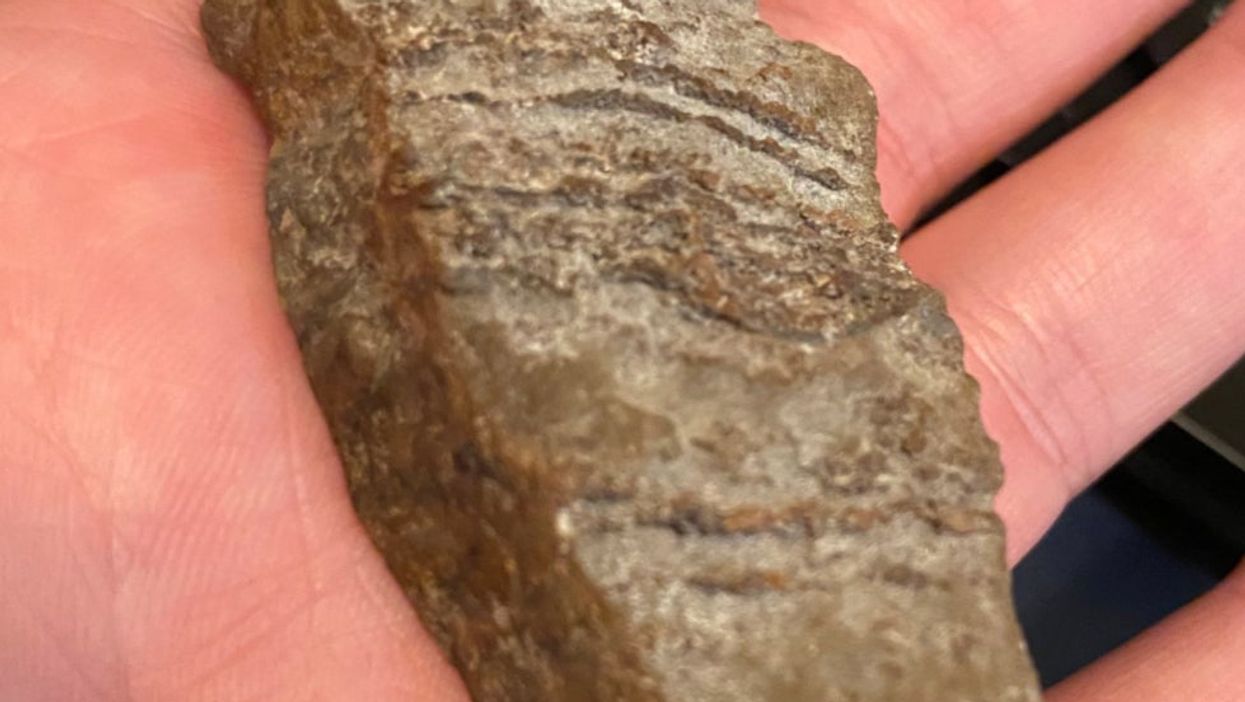
Kyle Morgenstein, a Texas PhD student, did something that most of us do on Twitter.
On Friday, he quote-tweeted a post from Andrew Nadeau, a comedian and staff writer for TheDad, saying, “Nobody offers to show me a cool rock they found anymore adulthood is so dumb.”
Nobody offers to show me a cool rock they found anymore adulthood is so dumb.— Andrew Nadeau (@Andrew Nadeau) 1617926535
Morgenstein responded to the tweet, sharing a rock. He captioned it as the following: “This rock is 3.5 billion years old. this rock is from Mars.”
this rock is 3.5 billion years old. this rock is from Mars. https://t.co/xQiobW2bYT https://t.co/5al56ntccZ— Kyle🚀🦈🪐🦖 (@Kyle🚀🦈🪐🦖) 1617991966
Cool and educational, right?
But some Twitter users, getting a little over-excited, thought it was so cool that they decided to ask him to lick the rock.
It wasn’t the first thing that came to mind, for us, but others just wanted to see a guy - working on his PhD - licking some martian rock.
See below:
#LickTheSpaceRockKyle Kyle Morgenstein: Lick the Space Rock Kyle - Sign the Petition! https://t.co/3wnU41th0O via @Change— Michael Harris (@Michael Harris) 1618023218
@KyleMorgenstein What does the Mars rock taste like— Gabe Lynch (@Gabe Lynch) 1617992051
@KyleMorgenstein https://t.co/rqBeepZGer— necroprancer 🇵🇸 (@necroprancer 🇵🇸) 1618096394
@KyleMorgenstein You owe it to the scientific community to lick this rock from Mars. The results could be enormous.— 🦈 Mr. Selachidon 🦈 (@🦈 Mr. Selachidon 🦈) 1618028289
Morgenstein has a degree in aerospace engineering from MIT and seems to really enjoy tweeting about all things outer space. The space rock that he took a photo of is actually a part of a meteorite.
All Mars missions such as NASA’s Opportunity rover have been one-way trips, with no way to return home with physical samples. Despite this, plenty of Martian meteorites have made their way back to planet Earth, giving scientists things to study from. Or, in this particular case, something to lick.
People even started using the hashtag #LickTheSpaceRockKyle to encourage him and even created a Change.org petition.
They weren’t playing around with Kyle.
The internet eventually prevailed. Morgenstein posted a video of himself licking the rock. And what did he discover? The rock “needs salt.”
fine. https://t.co/lTgISSWgNf https://t.co/AEn1u6A4lN— Kyle🚀🦈🪐🦖 (@Kyle🚀🦈🪐🦖) 1618097097
Morgenstein’s space rock is a meteorite lab sample rather than a fresh rock plug directly from the Martian surface itself. So, it probably doesn’t make for the most flavorful experience.
Mika McKinnon, a geophysicist, and public speaker gauges that the Martian surface might taste “bland with a hint of bloody seawater” due to Iron-rich minerals, percolates, and basalt. However, we’ll have to wait another decade to really uncover the secret when NASA’s first return mission from Mars is due to come back to Earth.
FAQ: What does Mars taste like? I would be absolutely delighted to taste-test Mars rocks, but for now we need to b… https://t.co/jKv0j5nLF1— Mika McKinnon (@Mika McKinnon) 1613670393
Until then, We’ll go with Kyle Morgenstein’s opinion of the rock.












